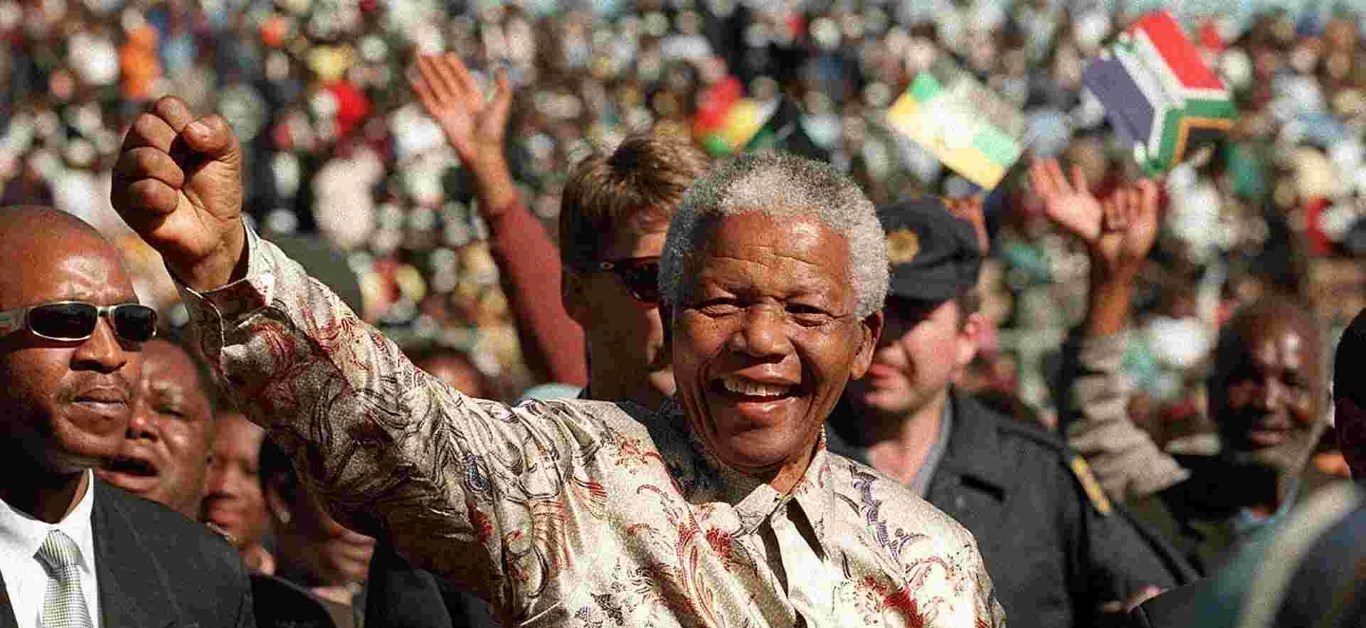100 Years On: Mandela’s Legacy Lives On
July 19, 2018 | Expert Insights

On the centennial birth anniversary of South Africa’s first black President Nelson Mandela, the country continues its struggle with inequality.
Background
Nelson Rolihlahla Mandela was born on 18 July 1918 to a royal family of a tribe in Mvezo, South Africa. He founded South Africa's first black law firm and his name has always been synonymous with the ANC. However, after leading the Youth League arm for a decade, Mandela grew weary of the lack of change resulting from the ANC's peaceful ways.
In 1960, following worldwide condemnation of the Sharpeville Massacre Mandela founded the armed wing of the ANC. It was known as "Spear of the Nation" and nicknamed "MK". For many years, Mandela and his political associates were routinely imprisoned and tortured for fighting against colonial rule in South Africa.
He was sentenced to life imprisonment during the Rivonia Trial, which attracted international attention. He spent the first 18 of his 27 year sentence at the brutal Robben Island Prison where he was confined to a small cell and compelled to do hard labor in a lime quarry.
While in confinement, Mandela earned a law degree from the University of London and served as a mentor to his fellow prisoners. He also smuggled out political statements and a draft of his autobiography, “Long Walk to Freedom.”
FW de Klerk, South Africa’s President from 1994 to 96, who remained conservative for a majority of his political career, was instrumental in joining hands with Mandela to bring an end to apartheid. The talks earned Mandela and de Klerk the Nobel Peace Prize in 1993. On April 26, 1994, more than 22 million South Africans cast their votes in the country’s first multiracial parliamentary elections in history. Winning an overwhelming majority on May 10, Mandela was sworn in as the first black president of South Africa, with de Klerk serving as his first deputy.
Mandela presided over the enactment of a new South African constitution, which established a strong central government based on majority rule and prohibited discrimination against minorities, including whites. After leaving office, Nelson Mandela remained a devoted champion for peace and social justice. He passed away in 2013, leaving a legacy in South Africa and the world.
Analysis
During his presidency from 1994 to 1999, Mandela focused on the reconciliation and unity of a society divided by racial hatred. However, he failed to address some of the big problems facing the country, such as the extensive racial and economic inequality that still traps the vast majority of black South Africans in poverty.
Land distribution remains a controversial topic as the white minority controls most of the land and adequate compensation has not been decided upon. Johannesburg, one of the three capitals, is engulfed in a severe water crisis as slums expand on the outskirts of the metropolis. Youth unemployment is at 50%. More than half the country still lives below the national poverty line and a small elite controls most of the nation's wealth.
South African political commentators speculate on "rainbowism", whereby true domestic issues such as the legacy of racism, crime, and the like are glossed over and "sugar-coated" by the cover of rainbow peace.
Mandela cannot be held responsible for these problems as the country could not handle radical change at the time. The priority of the 90’s was to end racial division which Mandela overcame with grace.
According to Habib, Mandela's "great weakness" was his reliance on a conservative economic agenda that has come to haunt South African 20 years later. Problems further proliferated under Jacob Zuma who stepped down in 2018.
Cyril Ramaphosa, who was a close confidant of Mandela's, has replaced Zuma. Under Mandela, Ramaphosa played a key role in drafting South Africa's new and liberal constitution. Researcher Jakkie Cilliers said, "South Africa now needs to confront some of its demons, and Ramaphosa has got that opportunity and he certainly comes from the Mandela era.”
Former US President Barack Obama spoke in Johannesburg at the 2018 Annual Nelson Mandela Lecture. He covered pertinent issues including the sacrosanct nature of facts, strength of immigration, disparity amongst the elite and poor, and the importance of democratic processes. He ended his speech by rekindling the hopes of the audience saying, “Keep believing. Keep marching. Keep building. Keep raising your voice. Every generation has the opportunity to remake the world.”
As a student, Mr. Obama fought against apartheid by encouraging his university to drop its investments in South Africa. He is amongst numerous individuals across the world who drew inspiration from Mandela and his peaceful fight against discrimination.
Assessment
Our assessment is that Nelson Mandela is immortalised in history as his struggle for equality fuels the spirits of those who believe in the non-violent pursuit of happiness and peaceful governance. We believe that he ignited a change which will be fostered under the new presidency of Cyril Ramaphosa.








Comments